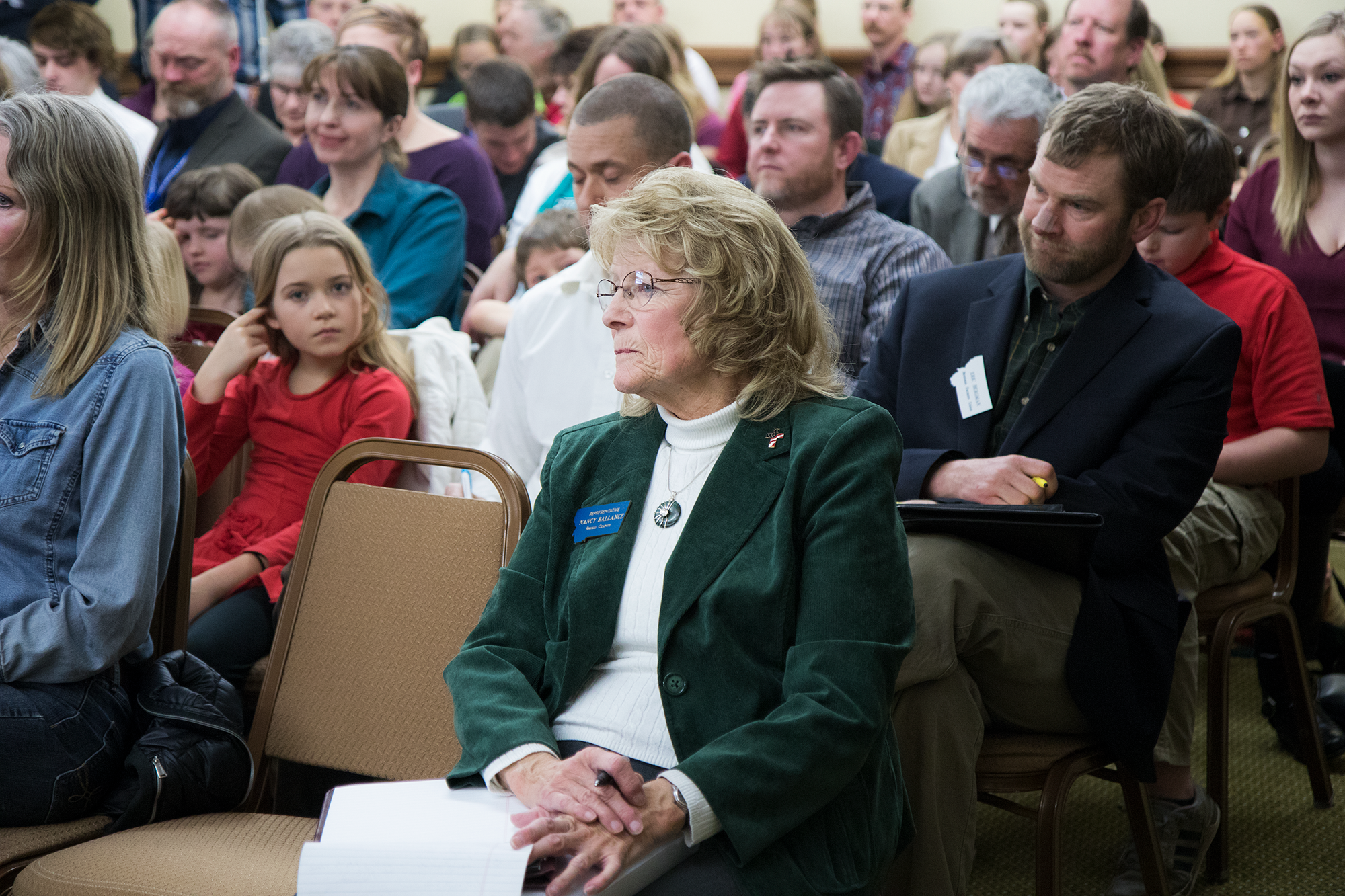By Michael Siebert UM Community News Service
The Montana Legislature is responsible for accomplishing a great deal during the 90 days it meets every two years.
But lawmakers are actually only constitutionally required to do one thing — create and pass a state budget.
On March 17, 56 days into the session, legislators passed House Bill 2, the bill that lays out funding for every major state agency. Lawmakers allocated $10 billion in general fund money to be spent over two years. HB 2 will now move onto the Senate, which will make further amendments to the bill.
It sounds simple enough. But the budget has been one of the most contentious topics of the entire session, with legislators debating every nook and cranny in an effort to have their values represented.
The budget can also be difficult to understand. But it also affects each and every Montanan. How the final budget shapes up will touch just about every aspect of life in Montana for the next two years.
The Basics
In order to understand why the budget is so important, it’s necessary to first understand where all that money goes.
“House Bill 2 quite simply is the money for the operation of state government,” said Rep. Nancy Ballance, R-Hamilton.
Ballance is the chair of the House Appropriations Committee, or the group of representatives who put together the budget before it is sent to the rest of the House. They are also sent bills to determine whether or not they are financially feasible given the budgetary constraints of the year.
Because HB 2 covers so much territory, the greater appropriations committee also splits into multiple subcommittees. Those subcommittees deal with specific portions of the budget. This year’s budget is broken into five categories — General Government, Health and Human Services, Natural Resources and Transportation, Corrections and Public Safety and Education.
In this particular session, however, the legislature had to make difficult choices about which areas to prioritize. First and foremost, they had to fill a significant budget shortfall. The 2015 session left an ending fund balance of around $270 million, but that was nearly depleted by the beginning of this year’s session, largely due to a drop in revenue coming in from oil and gas exploration.
Aside from filling the hole in the budget, the appropriations committees also must make sure that the state’s “essential services” are funded, and “to achieve structural balance as required by the Montana constitution,” Ballance said.
Why it matters
While these numbers can seem abstract, they have tangible effects on Montanans. Each section of the budget oversees a vast number of government agencies, programs and individual positions.
Section A, General Government, alone covers the Legislative Branch, the Governor’s Office, the Commissioner of Political Practices, the Office of the State Auditor, the Departments of Revenue, Commerce, Administration, Labor and Industry and Military Affairs, and all of the offices within those departments.
Each of those areas departments must work within the confines of the budget they are given. The numbers dictated by the legislature for the next two years tell them exactly how much they’re allowed to spend. If, for example, the Department of Military Affairs determines they were not given enough money, they must still work within the confines of their allotted budget.
Usually, that means cuts. This session has seen a significant amount of cuts, due in no small part to the revenue shortfall and lack of money leftover from last session.
Ballance said the cuts in the budget often reflect the removal of funding that went unused in the previous budget. For example, a program that provides care for low-income seniors and long-term care for disabled people didn’t spend a large portion of its allocation in the last budget. In this budget, it could see a reduction of almost $44.2 million.
Many other areas are facing significant reductions too. The Addictive and Mental Disorders Division could see an additional $22.3 million in cuts.
Democrats in particular pointed to General Government, Health and Human Services and Education as problem areas.
Minority Leader Jenny Eck, D-Helena, went so far as to call the cuts “unacceptable.”
“These are deep cuts that will affect people’s’ lives every single day,” Eck said. “We cannot go forward with a budget like this in good conscience.”
The split across party lines
While both parties were represented in the appropriations committees and subcommittees, the Republicans hold a majority, with 59 Republican representatives to the Democrats’ 41. The Republicans are the primary drivers of what the budget will look like by the session end.
In the past, when Republicans held the majority, that wasn’t a problem. Minority Vice Chair of the Appropriations Committee Kelly McCarthy, D-Billings, said in 2013 the budget was passed unanimously with no amendments.
This year was much different. When the budget entered second reading last week, Democrats used the opportunity to propose 26 different amendments to HB 2 during a marathon eight-hour floor session. The amendments attempted to fix what the party saw as budgetary shortcomings. Some were comparatively small, like an amendment to provide $32,000 for Indian language immersion programs. Others were substantially larger, like one that would have restored roughly $20 million in higher education funding.
“It was a long, hard day,” Eck said. “But that, to me is a success, to be fighting for our folks and making sure their voices are heard on the floor.”
But by the end of the day, every Democratic amendment had been shot down on party line or near-party line votes.
“We spent a whole day trying to fix it,” said Rep. Bryce Bennett, D-Missoula. “It’s a bad bill for Montana.”
Republicans argue the budget accomplishes nearly every goal the legislature set out to meet for the session. Ballance said most of the governor’s requests for cuts were fulfilled, and that all essential services received adequate funding.
It is now up to the Senate to make final adjustments to the budget. Once approved, it will be sent to Gov. Steve Bullock, who has authority to request line item changes or veto the entire budget.
Eck said the House missed an opportunity to create a more serviceable budget before it reaches the Senate.
“We could have a better budget right now if we chose to,” Eck said.
Michael Siebert is a reporter with the UM Community News Service, a partnership of the University of Montana School of Journalism and the Montana Newspaper Association.














